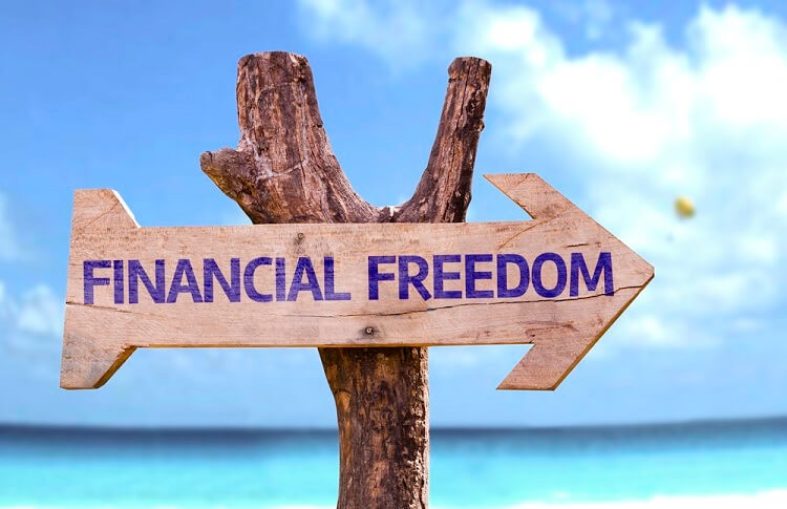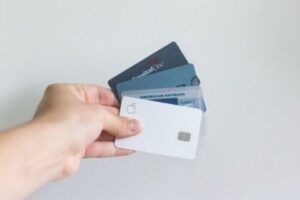Do you yearn for the flexibility to do what you want, when you want? Do you want autonomy over your schedule – like being able to travel on a whim? Have you ever dreamed of being stress-free?
Well, you’re not alone
What does financial freedom look like? It’s being in control of and understanding your finances, such as how much you’re earning and spending each month. It’s effective management of your debt – credit cards, mortgages, auto loans, etc. It’s having multiple sources of income (both active and passive).
If this sounds like a difficult position to reach, don’t worry. I’ll show you how to take simple steps to get you closer to financial freedom.
It doesn’t happen overnight. Financial freedom takes a long-term, diligent approach that begins with establishing and developing your financial foundation. If you practice most or all of the following financial habits, you’re well on your way to sweet, sweet financial freedom.
1. You keep a budget
Budgeting isn’t sexy. But it is practical.
Knowing exactly how much money you make versus how much you spend is essential to reaching financial freedom. A budget provides a personal blueprint of your finances. It categorizes your necessary and discretionary expenses, which gives you a better idea of where your hard-earned money goes.
The hardest part about keeping a budget is actually sticking to it. That’s why it’s important to find a healthy median when you’re constructing one. You don’t want to set impossible limits, nor do you want to give yourself too much leeway. This takes time and adjustments, but it’s a basic financial habit that pays dividends in the long-run.
Budgeting is square one of financial best-practices. If you’re proactive and maintain a budget, you’re one step closer to financial freedom.
2. You have a short-term money reserve
People are consumers. One way or another, we spend money every day. That’s why it’s important to have money readily available in your checking account (i.e. your short-term money reserve).
Using your budget, determine how much you typically spend in a month. Your short-term reserve should have at least this amount at all times. This ensures that your active, day-to-day spending is covered. If you’re more conservative, keep up to three months of expenses in your short-term reserve.
3. You have an emergency fund
Life is unpredictable. You don’t know what’s lurking around the corner.
Maybe that’s a little too ominous. Still, it’s best to expect the unexpected. Having money set aside in case of emergencies relieves the financial stress that usually accompanies unwanted, unexpected expenses.
You should keep six months of expenses in your emergency fund to ensure you’re prepared for anything. To take advantage of compound interest, house your emergency fund in a savings account. That way it’s still accessible and can grow over time.
4. You have a brokerage account
The first three signs are related to short-term habits. But it’s just as important to keep an eye on your future as well.
Brokerage accounts house your long-term investments, which should be tied to your long-term goals. Whether it’s your future home or children’s education, it’s imperative to set money aside for these expensive life events.
And the sooner the better, as long-term investing allows you to take advantage of compound interest.
5. You have (and contribute to) an IRA/401k
Whether it’s through your own personal IRA or through your company’s 401k plan, it’s essential to contribute to your retirement. Just having one isn’t good enough. You have to make deposits into it too.
Typically, companies will match your 401k contributions up to a certain percentage or amount. If you don’t take advantage of this, you’re losing out on free money. If you do capitalize on your company’s matching offer, your future-self is graciously thanking you!
It’s hard to keep your retirement in mind, especially in your younger years. But, just like saving for future goals, the sooner you invest in your future, the more you’ll be able to let compound interest work its magic. That’s important to recognize, as the average retirement age has continued to rise over the years.
6. You properly manage your credit card debt
Credit cards have a lot of benefits. Airline miles, cash-back, etc. But they can also be easy to abuse.
If you frequently paydown your last statement balance and pay on time – every time – you’re properly using your credit card. If you’re spending money you don’t have or consistently making late payments, you’re hurting your credit score and your financial stability.
7. You have multiple sources of income
The key to rapidly building wealth is to have multiple sources of income. The less you rely on a single source, the better.
Diversifying your cash inflows safeguards your financial stability, as you reduce the risk associated with losing a source of income.
Whether it’s a side-business, part-time job, or freelance work, these secondary sources will amplify your earnings. If you want to reach financial freedom faster, consider additional opportunities to make extra money.
Wrapping Up
Financial freedom allows us to choose how we spend our time. However, financial stress is a burden many of us shoulder, which limits our options. Imagine having total control of your life, being able to get a refreshing night’s sleep – because you’re not stressed about your money situation.
If that sounds like a position you want to be in, get to work on the above financial best practices. Soon enough, you’ll be growing your wealth and embracing financial freedom.
This is a guest post by Carter Kilmann. He is a freelance writer and editor, specializing in personal finance and investing. His services include blogging, website content writing, ghostwriting, copywriting, and editing. When he’s not writing, he’s anxiously waiting for football season or attempting to cook like Gordon Ramsey – still a work in progress.



